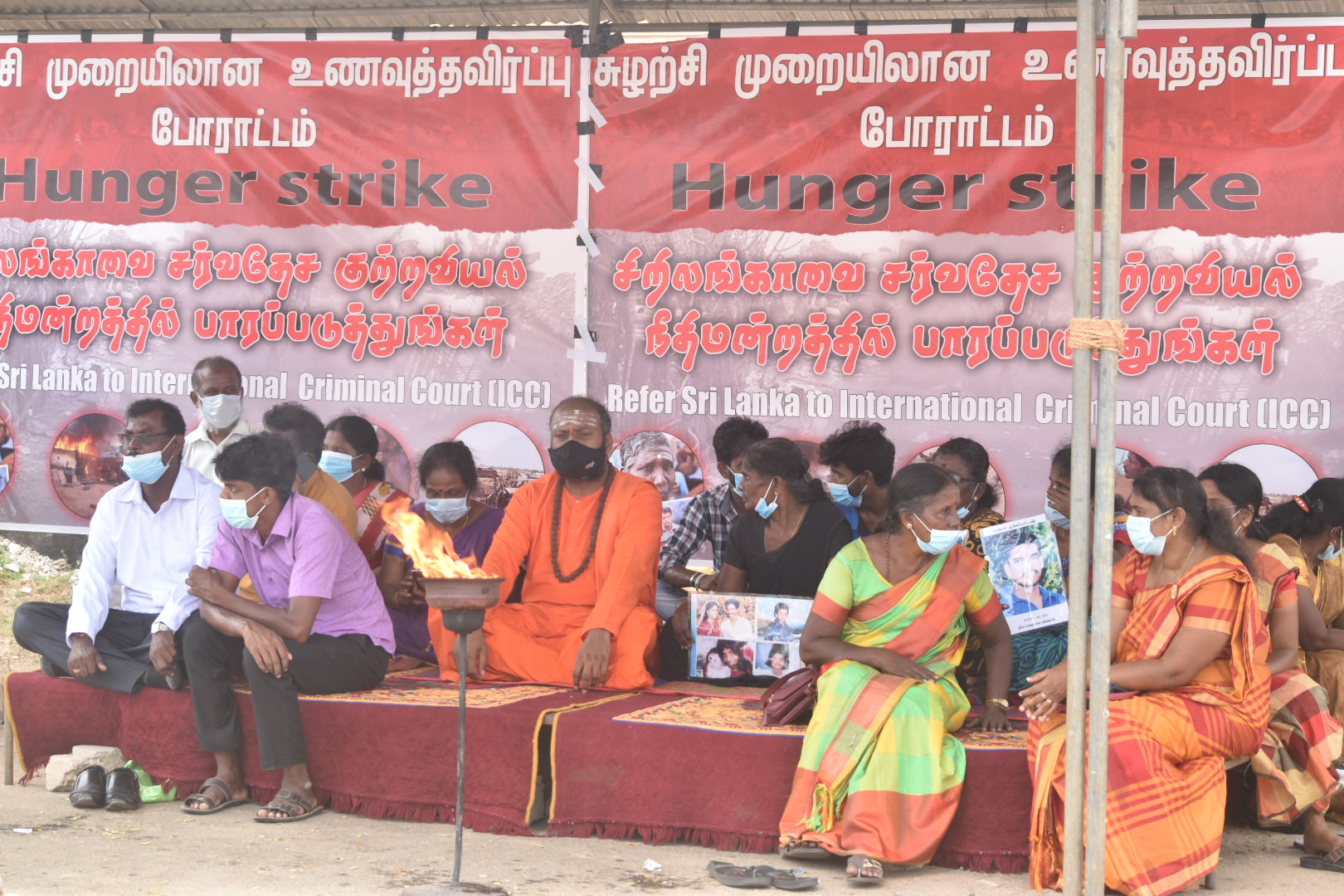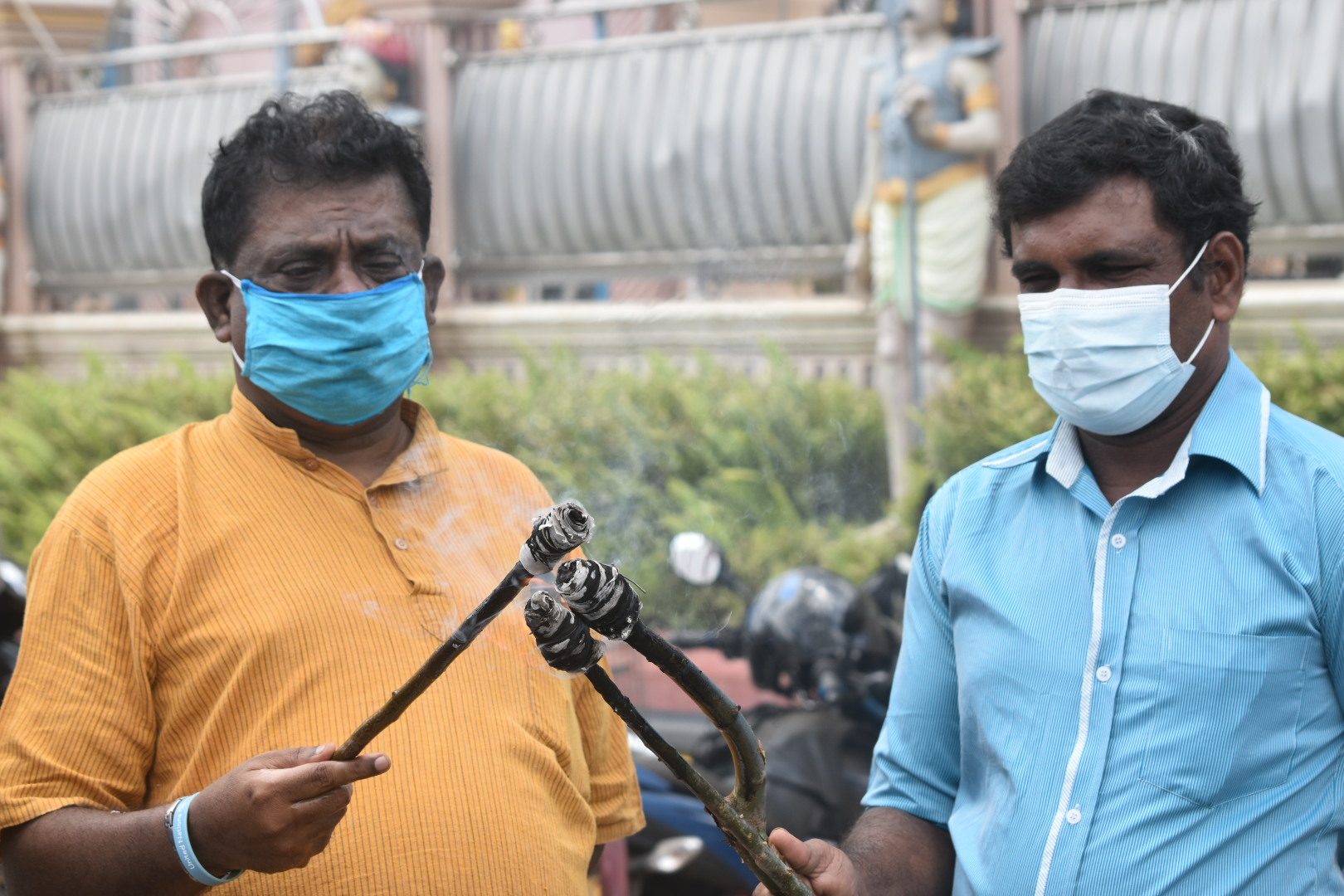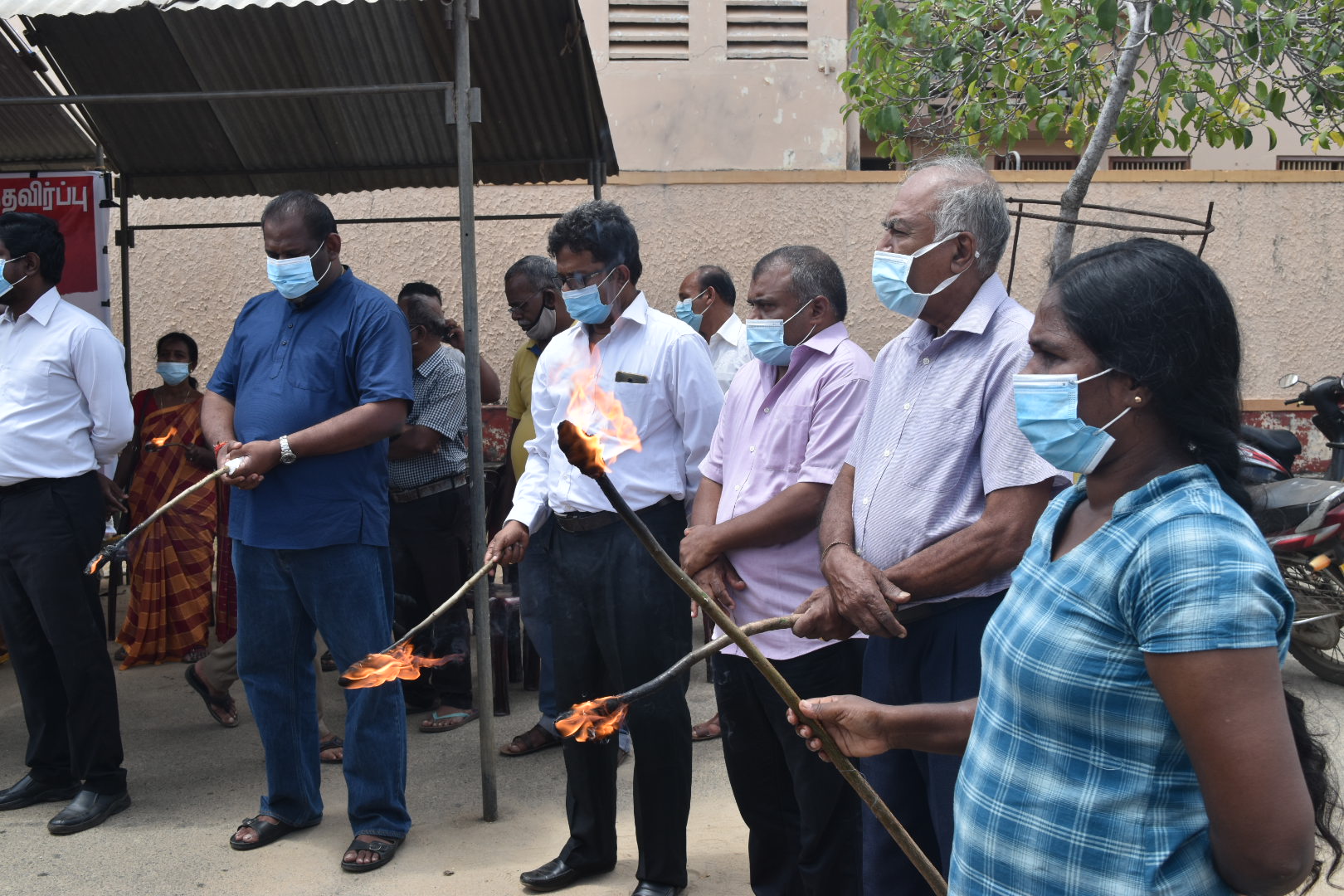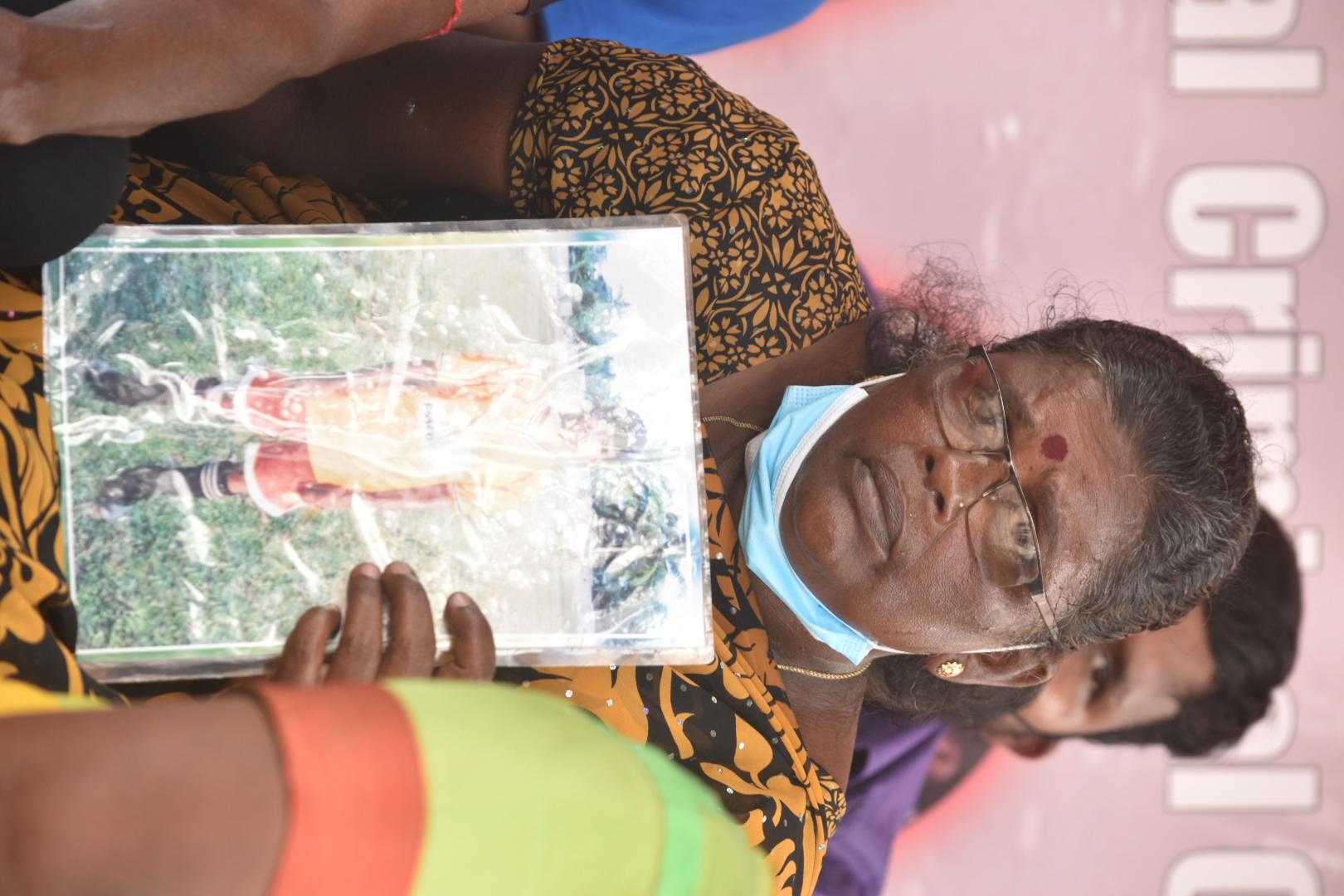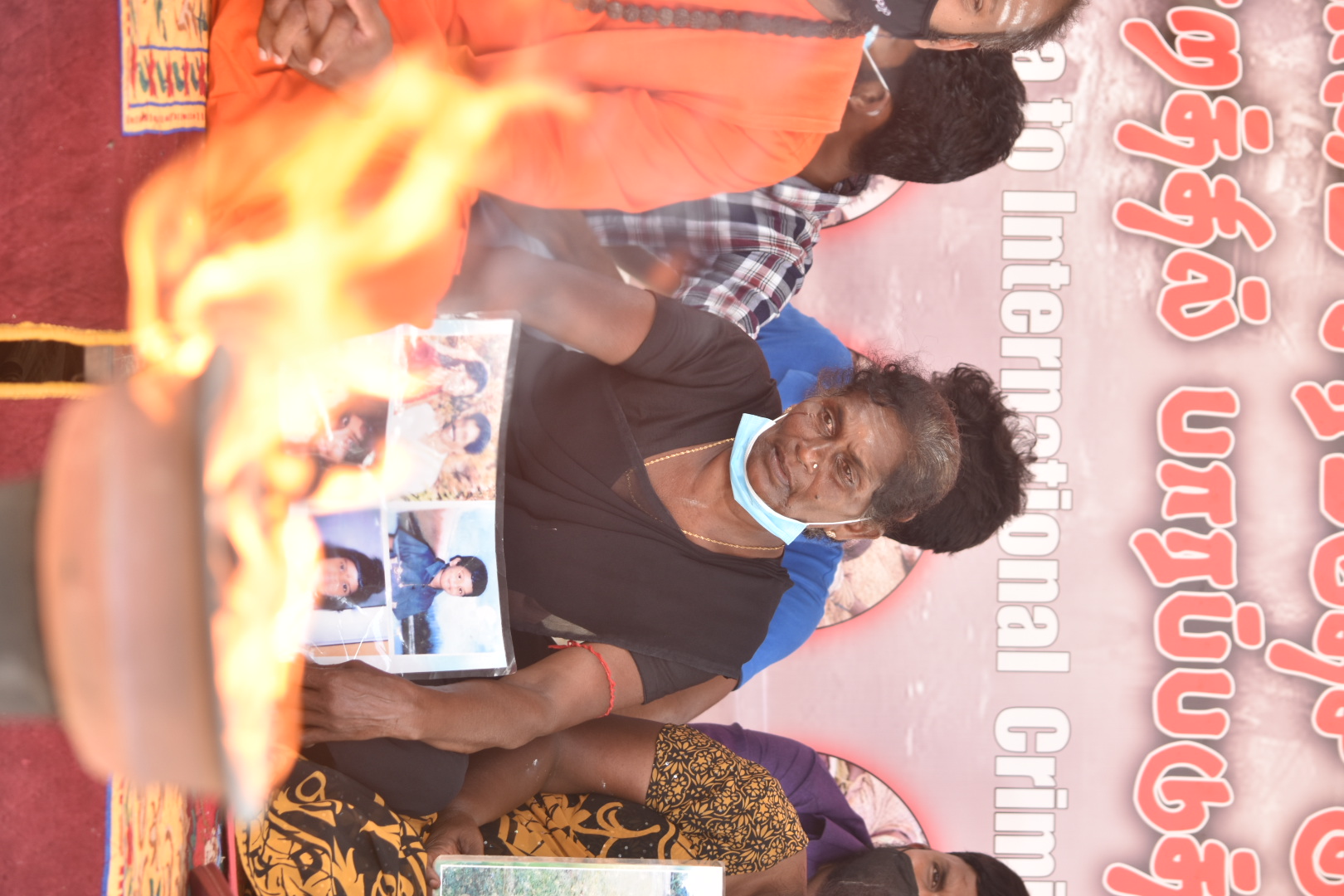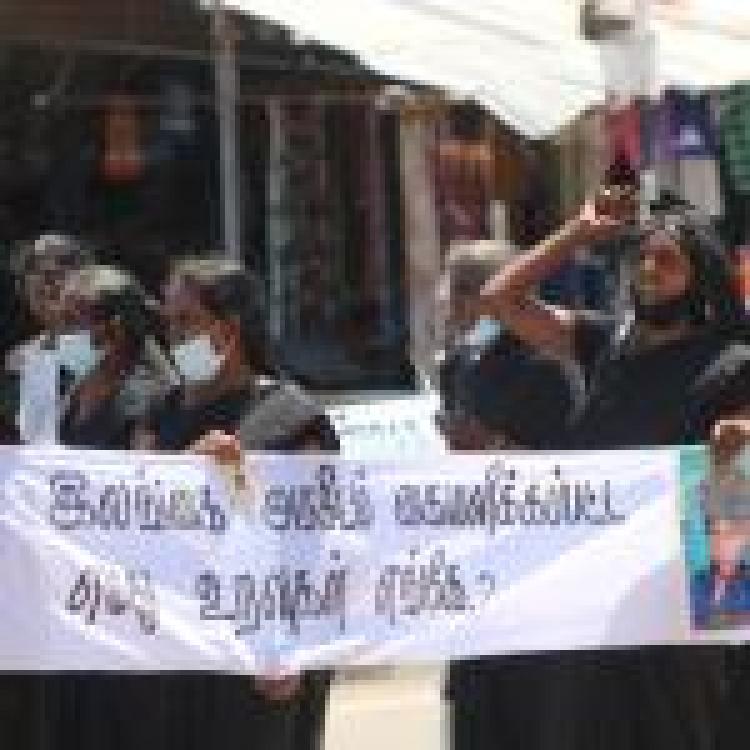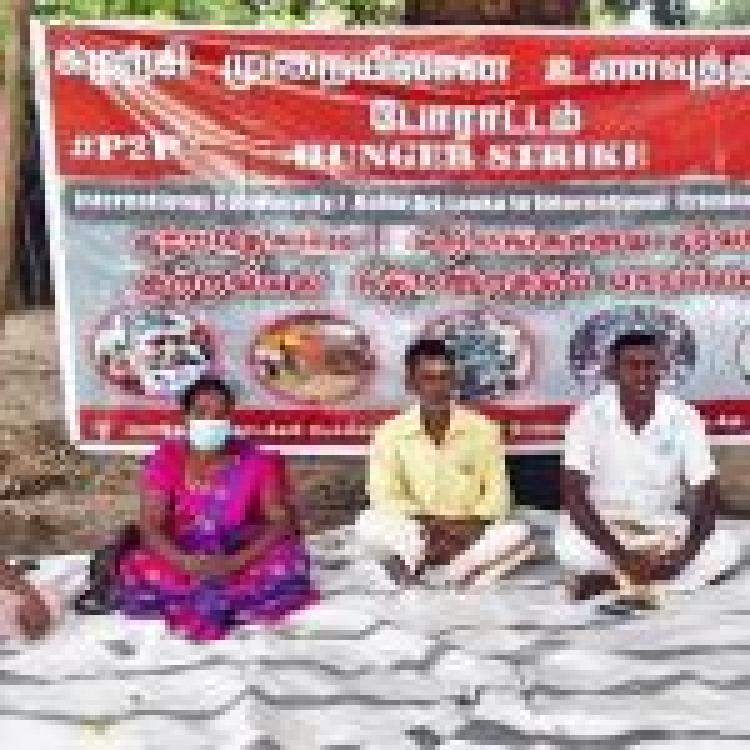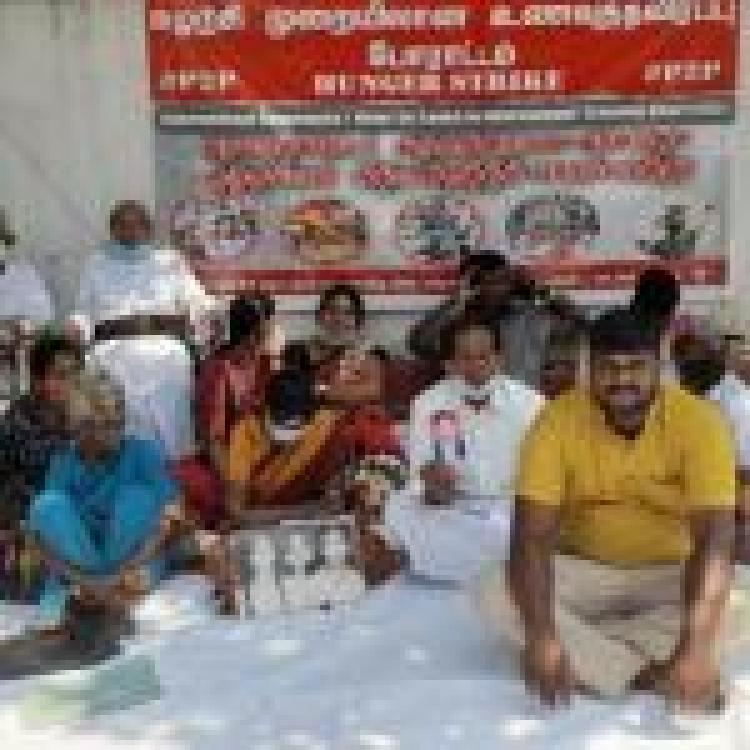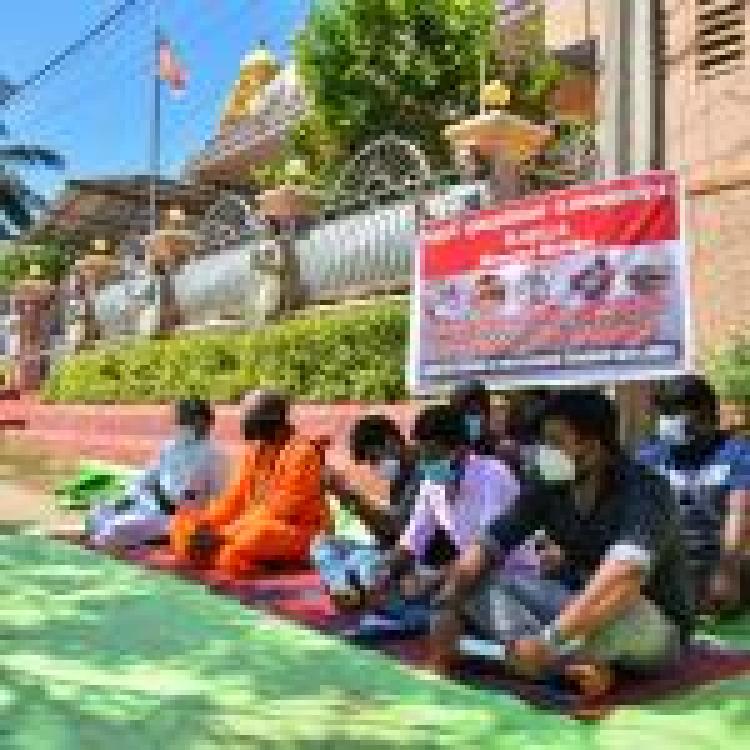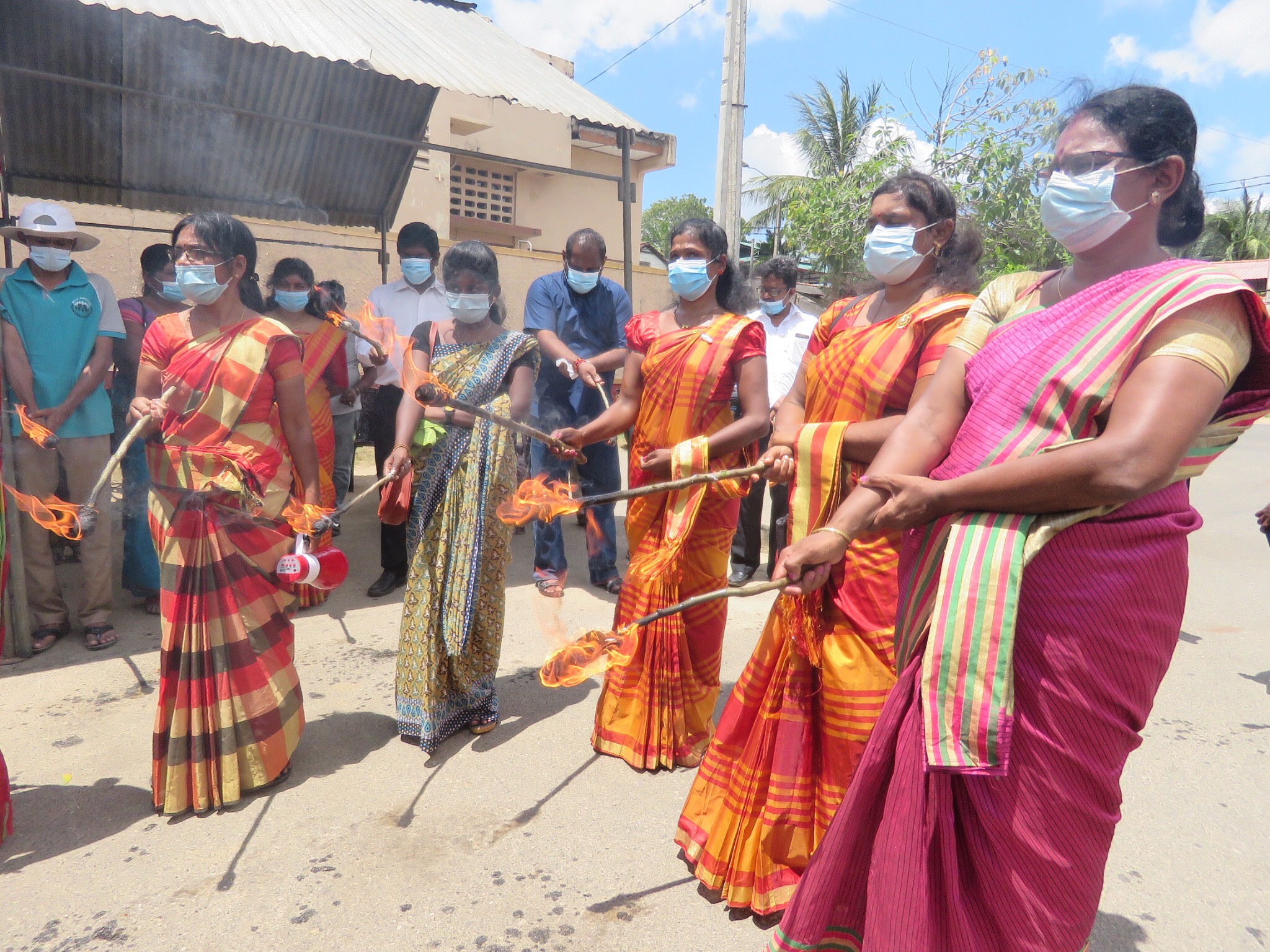
A protest was held in Jaffna today marking International Women's Day, demanding international justice for human rights abuses against women by the Sri Lankan government.
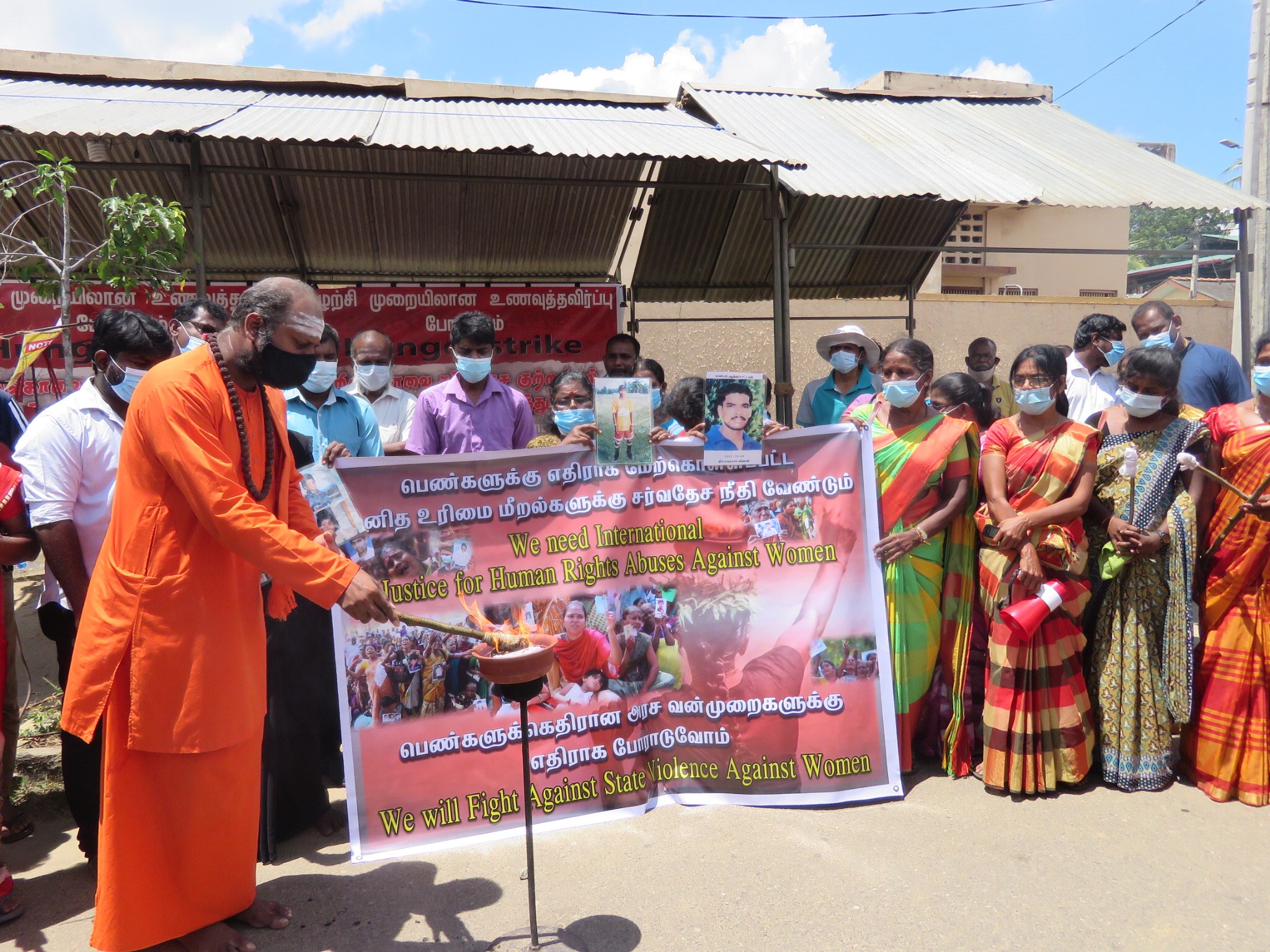
Demonstrators held flame-bearing sticks lit from a sacred clay pot, calling for international justice against Sri Lanka’s ongoing injustices, such as not providing answers to the forcibly disappeared at the end of the armed conflict in 2009.
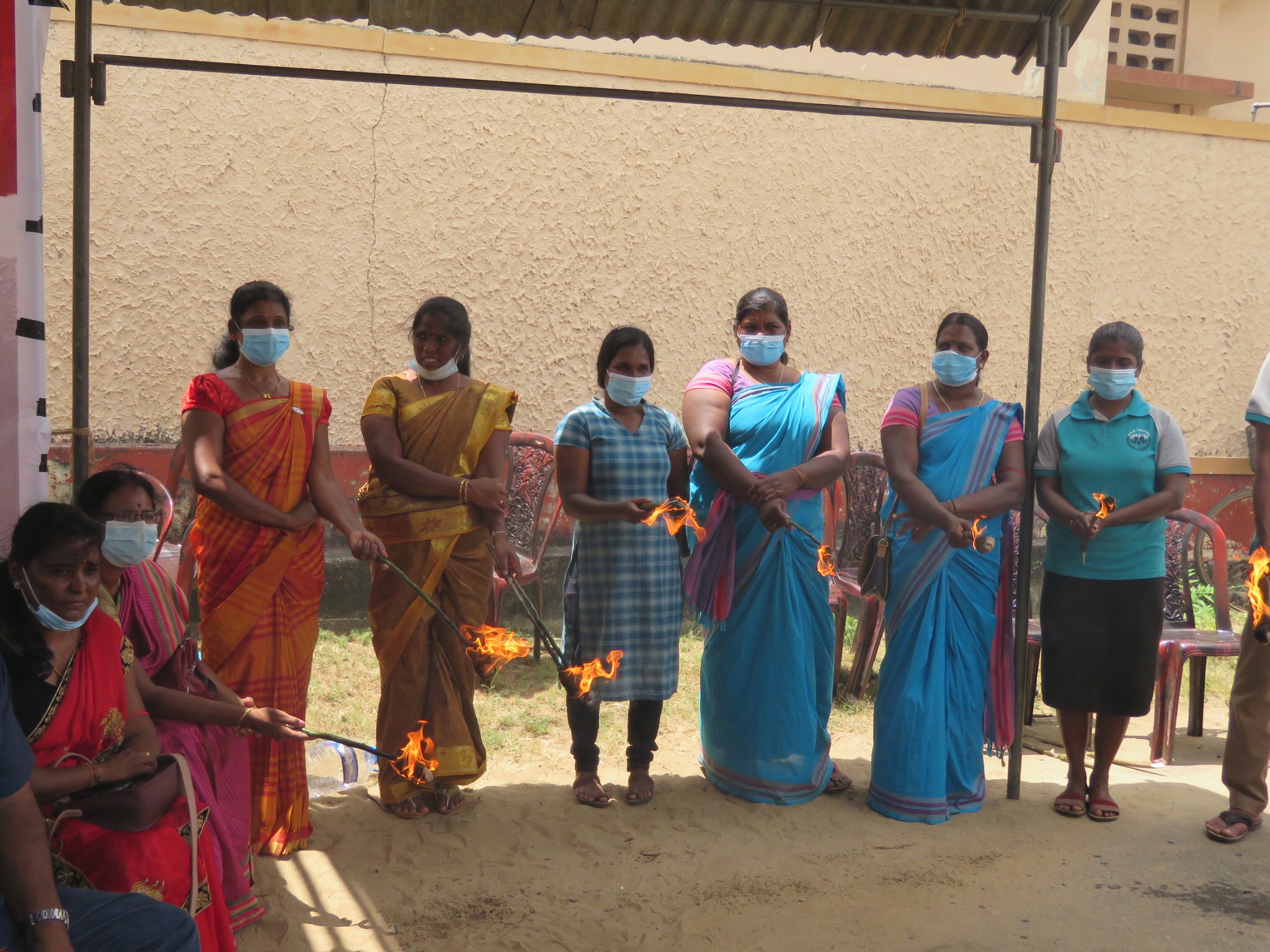
The protest, which was organised by civil organisations in the North-East and Jaffna university students, was held near the Nallur Kandasamy Temple, where the rotating hunger strike demanding that the Sri Lankan government be brought before the International Criminal Court entered its 9th day.
Families of the disappeared in the North-East, university students, religious leaders and locals across the North-East were among those in attendance.
Tamil politicians such as former Northern Provincial Council member M. K. Shivajilingam, TNPF leader MP Gajendrakumar Ponnambalam and General Secretary MP Selvarajah Kajendran also took part in the protest.
University students mobilised with civil organisations in the North-East to launch a rotating hunger strike in the North East at the end of last month, demanding that Sri Lanka be brought before the International Criminal Court in solidarity with Ambihai K Selvakumar, a director of the International Centre for the Prevention of Genocide (ICPPG), who launched a hunger strike in London urging the UK government to meet her 4 demands.
Recently, families of the disappeared in the North-East marked four years of protests urging for accountability and justice for their missing loved ones, as they continue to ask the Sri Lankan government to provide answers for their whereabouts. Demonstrations carried by the families of the disappeared across the North-East have repeatedly urged for the UN and international community to provide justice.
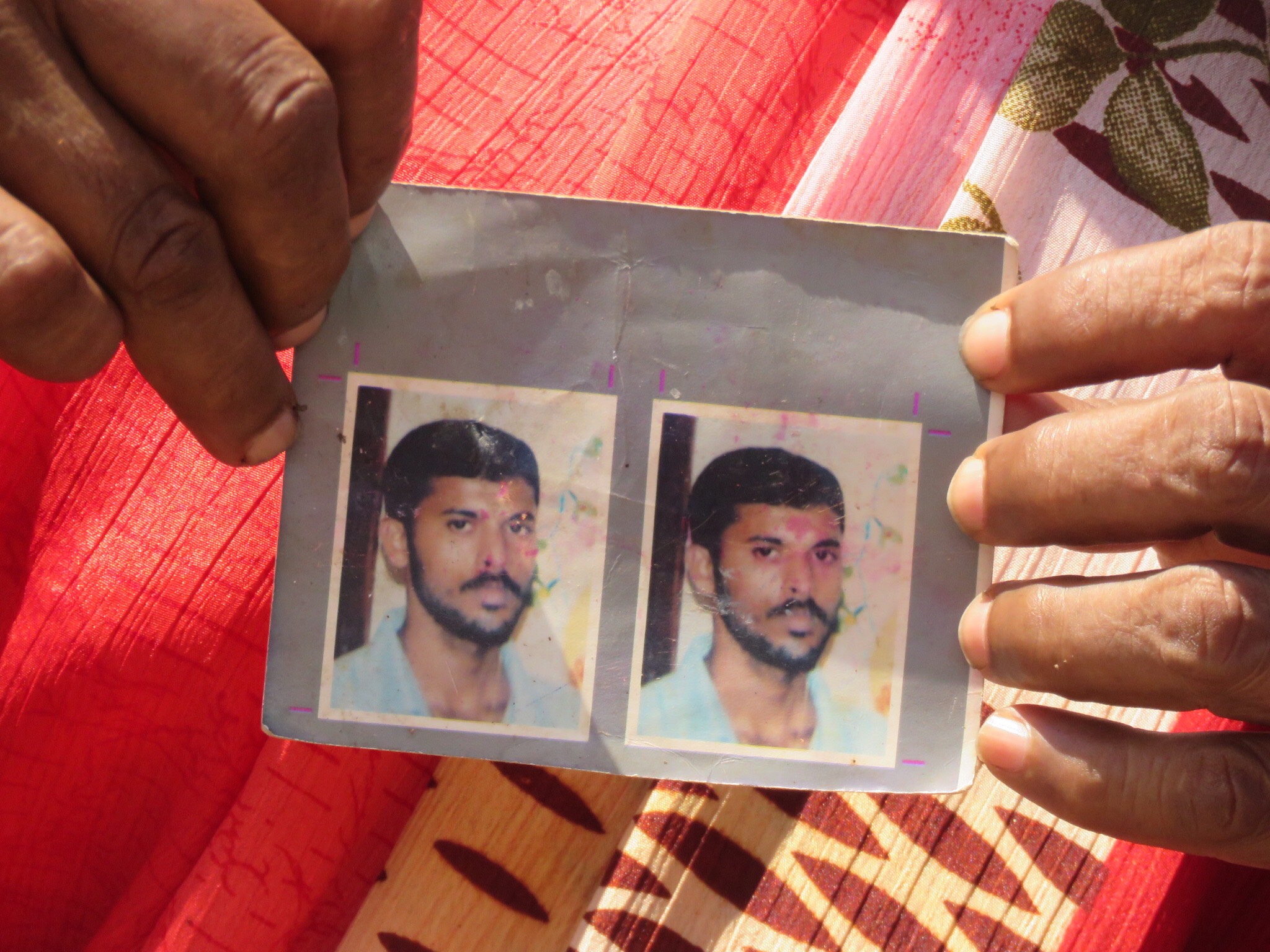
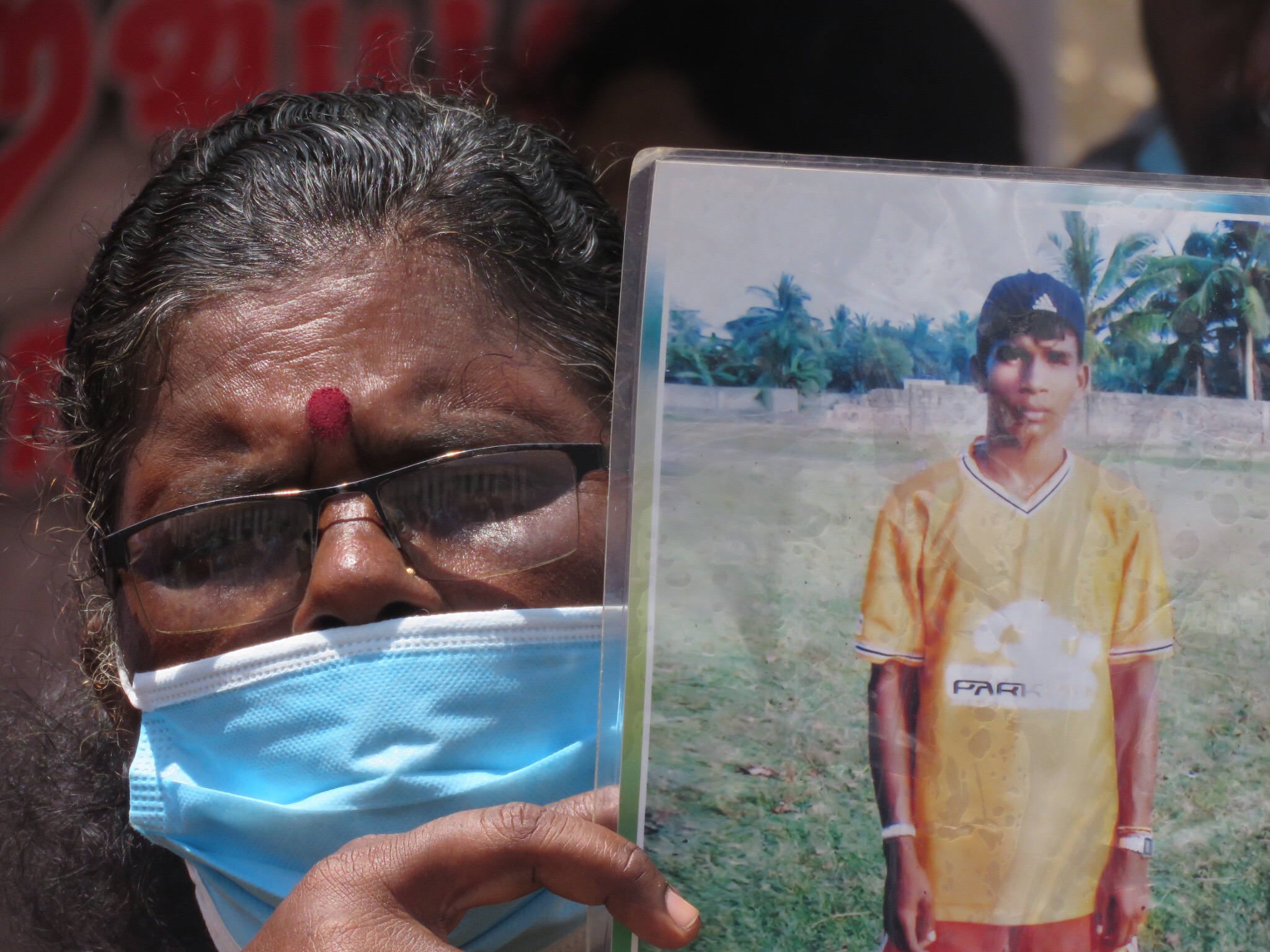
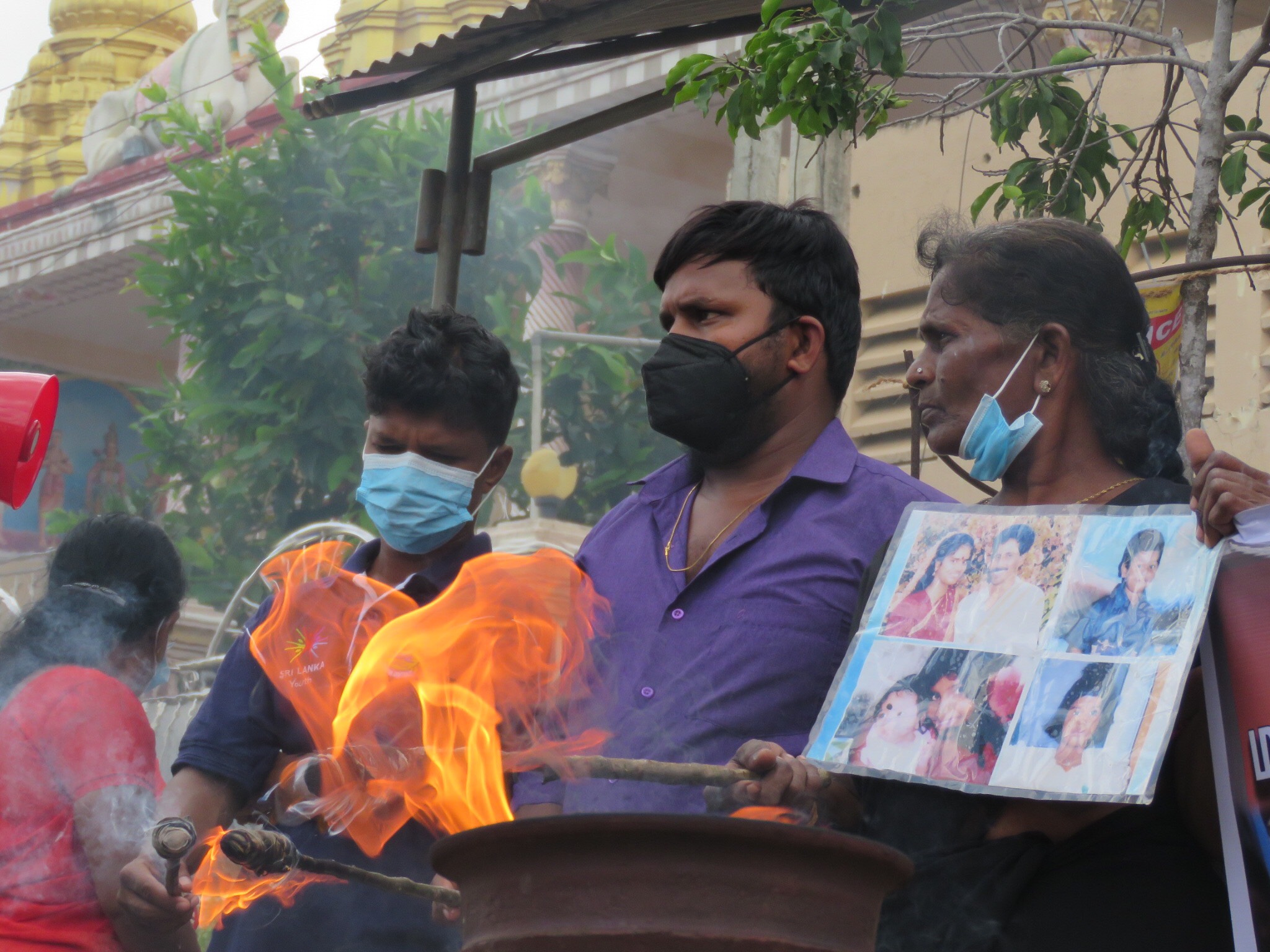
Protests took place today across the North-East in other districts such as Mullaitivu and Vavuniya against Sri Lankan’s injustices towards women.

